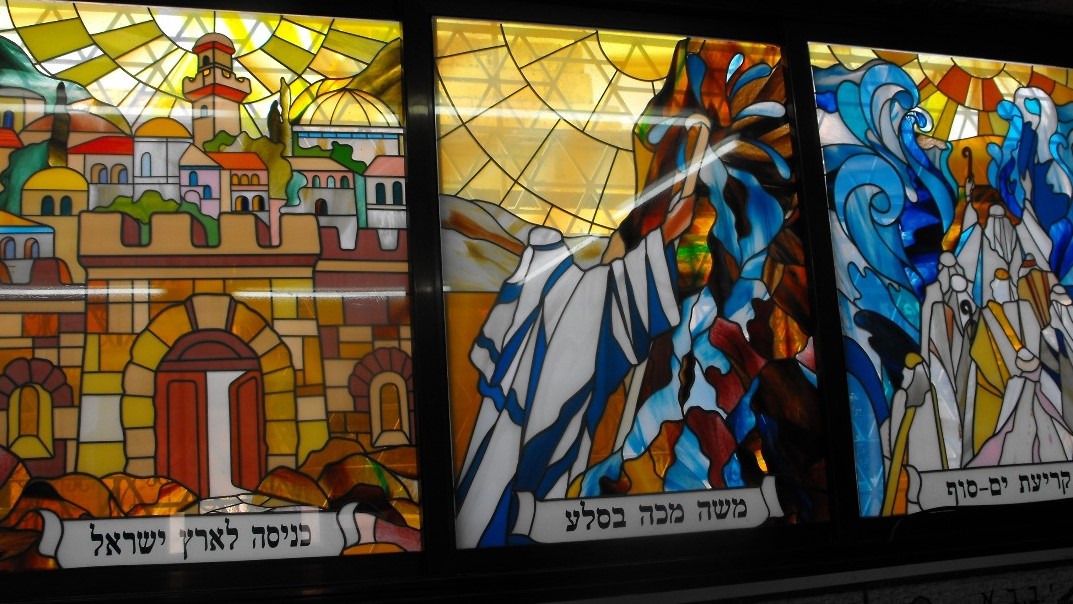
Isaiah 44:6-8
Ordinary A34
6 Thus says the Lord,A the King of Israel,B
and his Redeemer,C the Lord of hosts:D
I am the first and I am the last;
besides me there is no god.E
7 Who is like me? Let them proclaimF it,
let them declareG and set it forthH before me.
Who has announced from of oldI the things to come?
Let them tell us what is yet to be.
8 Do not fear,J or be afraid;K
have I not toldL you from of old and declared it?
You are my witnesses!M
Is there any godN besides me?
There is no other rock;O I knowP not one.
Image credit: “Stained glass windows in Or Torah Synagogue (Akko, Israel) depicting (right to left): Crossing of the Red Sea, Moses striking the rock, and Jerusalem.” link
